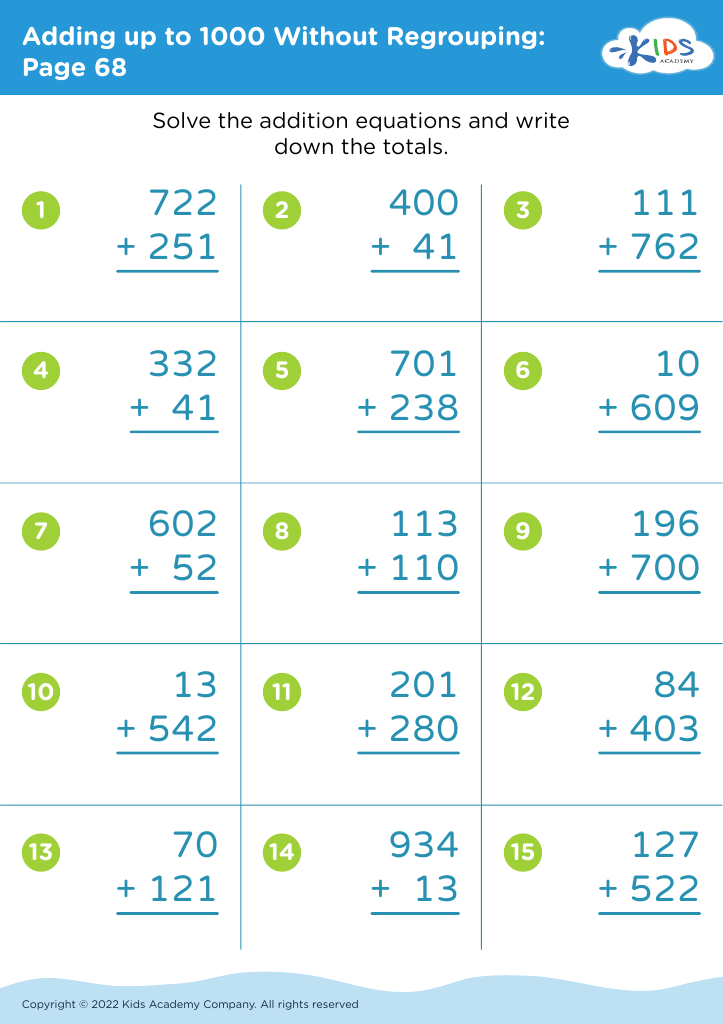Understanding number sequences Addition Worksheets for Ages 3-7
3 filtered results
-
From - To
Introduce your little learners to the world of addition with our "Understanding Number Sequences Addition Worksheets" tailored for ages 3-7. These engaging worksheets help children strengthen their number sequence skills while mastering the fundamentals of addition. Students will practice identifying and completing number patterns, enhancing their number recognition and problem-solving abilities. Our vibrant, age-appropriate activities make learning fun and interactive, ensuring an enjoyable educational experience. These worksheets are carefully designed to encourage critical thinking and boost confidence in early math skills. Perfect for both classroom and home use, our resources will inspire a love for math in your young learners. Start your journey today!
Understanding number sequences and addition is a foundational skill set crucial for children aged 3-7. At this stage of development, children are beginning to grasp basic mathematical concepts, which are essential not only in their academic environments but also in everyday life. By fostering a strong understanding of number sequences, children learn to recognize patterns and predict what comes next, skills that enhance their critical thinking and problem-solving abilities.
Additionally, mastering addition paves the way for future mathematical learning. It helps establish confidence in handling numbers and sets the groundwork for more complex topics such as subtraction, multiplication, and division. When parents and teachers emphasize these concepts, they contribute to a child’s cognitive development, leading to improved performance in school.
Furthermore, early number sense is linked to overall literacy and academic success. Children who are comfortable with numbers tend to perform better in subjects that require analytical thinking, thus preparing them for future learning challenges.
Involving parents and teachers in this foundational phase creates a supportive learning environment where children can explore math concepts playfully and collaboratively. Ultimately, understanding number sequences and addition equips young learners with the essential skills they need for lifelong learning.



















